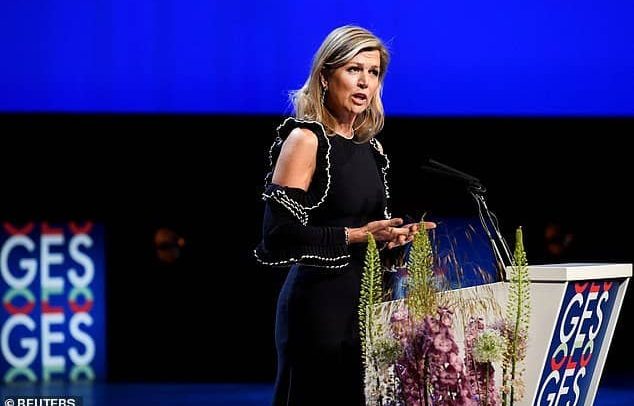Queen Maxima of Netherlands at the GES 2019
The Global Entrepreneurship Summit (GES) 2019 officially opened on Tuesday, June 4, with a call on developing countries to guard against the growing situation of limited competition and excessive market concentration by few producers or sellers in their quest to develop entrepreneurship, especially in the digital space.
Queen Máxima of the Netherlands who made the call at the opening plenary of the three-day event in the Hague, Netherlands, said as developing countries embraced new technologies, the likelihood of a winner-takes-all situation could be more pronounced in emerging economies.
“Because of the absence of infrastructure, a new innovative player can build an ecosystem to address the innovation challenges around their business models,” she added. “This is, of course, needed to transform a market in the beginning but might lead to a monopolistic or oligopolistic market structure.”?
Addressing about 2000 participants, made up of entrepreneurs, investors and government officials, Queen Máxima highlighted the need for regulators in developing countries to mitigate against excessive market concentration.?
“For all these things to work in an inclusive and fair way, we will need certain prerequisites,” she said.
“These key prerequisites include cyber security, digital ID systems, customer data protections, financial and digital literacy, data privacy and connectivity to all segments of the population.”?
She further explained that such regulations should however not stifle innovation but protect consumers and the stability of systems.
US Secretary of State, Michael Pompeo, speaking at the GES welcome reception yesterday, celebrated the values of individual creativity and entrepreneurship, saying “you might not be storming beaches with a rifle, but each of you are promoting human flourishing.”
He said GES 2019 offered a wealth of opportunities for established multinational businesses and scale ups, for institutional and private investors and in fact, for the world as a whole, “Because the Global Entrepreneurship Summit has a long-standing tradition of building connections that make the world better and at the same time make a healthy profit.’
He also entreated governments who want to create the right ecosystem for entrepreneurship to ensure entrepreneurs have the right to private property – both physical property and intellectual property without which there is no incentive to innovate.
“The second thing entrepreneurs need is the rule of law … the third element, is for governments to “stop strangling business”.
He encouraged the participants to “take what you learn here back to your home country, and use it to do what entrepreneurs do best: Solve problems and create value for your fellow man.”
Prime Minister of Netherlands, Mark Rutte, spoke about the role business can play in addressing the major challenges the world is facing like climate change, food production, connectivity, energy and health.
“It’s crystal clear that society is your next big client. It’s clear that sustainability is by far the biggest business case of our time. And that innovation is key,” he said.
The Dutch Prime Minister emphasized that strong societies are built on entrepreneurship and the principles of free trade.
“Because entrepreneurship and the rule of law feed into one other. Because democracy, equality and political stability are prerequisites for prosperity and progress.
And because in the end, fair competition and the protection of intellectual property benefit us all,” he stated.
From Jamila Akweley Okertchiri, The Hague, Netherlands. Courtesy Foreign Press Centers.

